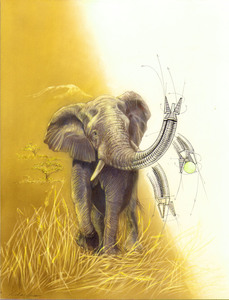A Year at the Forefront of Hydrostat Motion
2023
Article
hi
Currently, in the field of interdisciplinary work in biology, there has been a significant push by the soft robotic community to understand the motion and maneuverability of hydrostats. This review seeks to expand the muscular hydrostat hypothesis toward new structures, including plants, and introduce innovative techniques to the hydrostat community on new modeling, simulating, mimicking, and observing hydrostat motion methods. These methods range from ideas of kirigami, origami, and knitting for mimic creation to utilizing reinforcement learning for control of bio-inspired soft robotic systems. It is now being understood through modeling that different mechanisms can inhibit traditional hydrostat motion, such as skin, nostrils, or sheathed layered muscle walls. The impact of this review will highlight these mechanisms, including asymmetries, and discuss the critical next steps toward understanding their motion and how species with hydrostat structures control such complex motions, highlighting work from January 2022 to December 2022.
| Author(s): | Andrew Schulz and Nikole Schneider and Margaret Zhang and Krishma Singal |
| Journal: | Biology Open |
| Year: | 2023 |
| Department(s): | Haptic Intelligence |
| Bibtex Type: | Article (article) |
| Paper Type: | Journal |
| DOI: | 10.1242/bio.059834 |
| Note: | N. Schneider, M. Zhang, and K. Singal all contributed equally on this manuscript. |
| State: | Published |
|
BibTex @article{Schulz23-BiologyOpen-YATF,
title = {A Year at the Forefront of Hydrostat Motion},
author = {Schulz, Andrew and Schneider, Nikole and Zhang, Margaret and Singal, Krishma},
journal = {Biology Open},
year = {2023},
note = {N. Schneider, M. Zhang, and K. Singal all contributed equally on this manuscript. },
doi = {10.1242/bio.059834}
}
|
|


